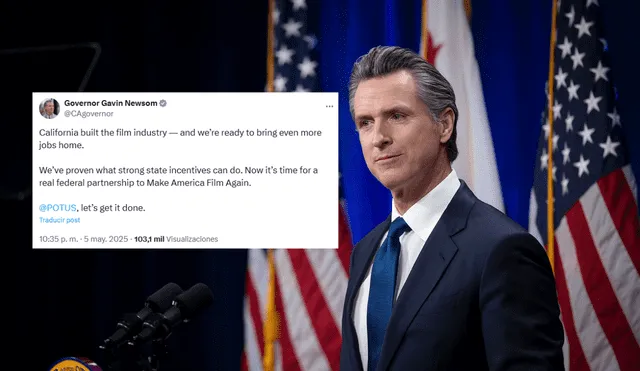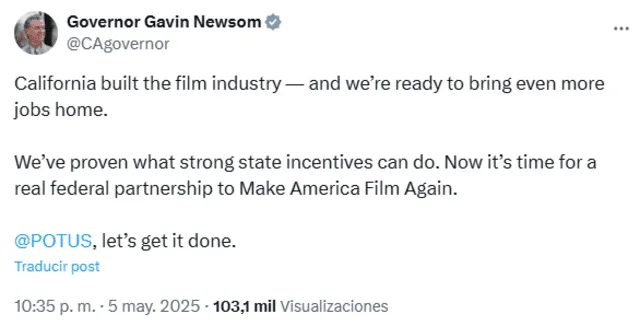Governor Newsom proposes $7.5B federal film tax credit in response to Trump's foreign film tariffs
California Governor Gavin Newsom proposes a $7.5 billion federal film tax credit to counteract President Trump's 100% tariff on foreign-made films, aiming to strengthen domestic film production and preserve industry jobs.

In light of President Trump's recent declaration to impose a 100% tariff on all foreign-produced films entering the U.S., Governor Gavin Newsom has extended an offer to collaborate on a substantial federal tax credit aimed at invigorating the domestic film industry.
Newsom emphasized California's historical role in building the film industry and expressed readiness to bring more jobs back home through proven state incentives.
Newsom's proposal to support domestic film production
In an X post, California Governor Gavin Newsom reached out to Donald Trump to establish a new plan to create new jobs in the film industry. He even tagged him saying "let's get it done".

California Governor Gavin Newsom proposes a $7.5 billion federal film tax credit in response to President Trump's plans for foreign film tariffs. Photo: Gavin Newsom's X
However, that same day in an unrelated press conference delivering a sports announcement, Donald Trump was asked about the new tariff plan regarding foreign films, and called Gavin Newsome a "grossly incompetent man" for allowing the film industry to be "taken away from Hollywood".
Nonetheless, if approved, the tax credit would be the biggest subsidy deal ever provided by the federal government for the industry, as many states offering similar incentives do not go over $1 billion annually.
Trump's tariff announcement and its implications
While currently, there is not an established plan about how these tariffs would work, Trump's proposal has drawn mixed reactions from the entertainment industry. Although many see it as a step forward, protecting domestic jobs, many expressed concern over the increased production costs and if it was even possible.
According to Trump, the goal of this policy is to help the industry and not harm it. He added he wanted to "meet with the industry" to make sure they're "happy" with the proposed tariffs, because "we're all about jobs."













